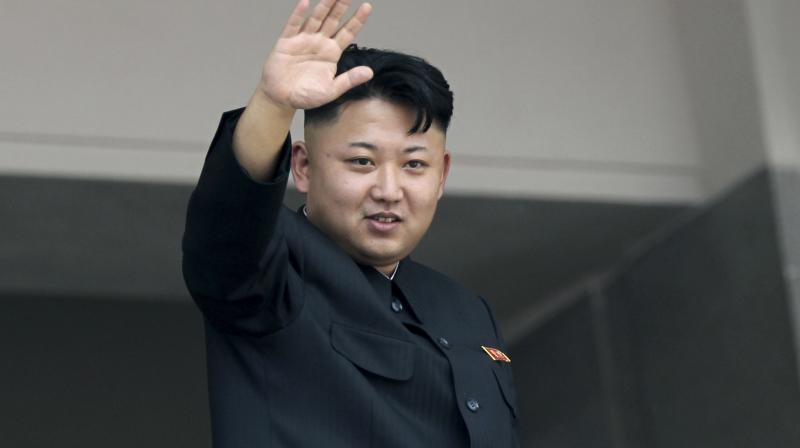Will deploy, mass produce new missile as answer' to Trump's policies: North Korea

Tokyo: North Korea says it's ready to deploy and start mass producing a new medium-range missile capable of reaching Japan and major US military bases there following a test launch it claims confirmed the missile's combat readiness and is an "answer" to President Donald Trump's policies.
The missile tested on Sunday is believed to be capable of reaching Japan and several major US military bases in the country.
North Korea's media said that more missiles would be launched and that they're the country's answer to the Trump administration. Trump, travelling in Saudi Arabia, had no immediate public comment.
The missile, which was described by Washington as medium-range, was fired from Pukchang in South Pyongan province and travelled about 500 kilometres (310 miles) before landing in the Sea of Japan, according to the South's armed forces.
The rocket used a cold-launch system, KCNA said. The technology uses compressed gas to propel a missile upwards before its engine ignites in mid-air. It is considered safer and also makes it easier to hide the launch location.
A spokesman for Seoul's Joint Chiefs of Staff told reporters that South Korean and US intelligence authorities "assess that North Korea secured meaningful data in advancing the reliability of its missile technology through yesterday's missile launch". But he added: "Our position is that the stable re-entry of the warhead needs more verification."
The US, South Korea and Japan sharply denounced the launch and jointly requested an emergency meeting of the United Nations Security Council, which will be held Tuesday.
The launch came just one week after the North fired a Hwasong-12 intermediate-range missile, which according to Pyongyang was capable of carrying a "heavy" nuclear warhead".
Analysts said that at 4,500 kilometres the Hwasong-12 had a longer range than any previous ballistic missile launched by the North, putting US bases on the Pacific island of Guam within reach -- and that it could serve as a platform to develop a long-range ICBM.
Pyongyang has long had missiles that can reach targets across South Korea and Japan but is accelerating efforts to develop an intercontinental ballistic missile (ICBM) capable of delivering a nuclear warhead to the continental United States -- something President Donald Trump has vowed, "won't happen".
The launches, and a threatened sixth nuclear test have fuelled tension with the Trump administration, which has warned that military intervention was an option under consideration, sending fears of conflict spiralling.
But so far Washington has opted for sanctions and diplomatic pressure, while looking to China, the North's closest ally, to help rein in Pyongyang.
Seoul's foreign ministry slammed the "reckless and irresponsible" weekend firing as "throwing cold water on the hope and longing of the new government and the international community" for denuclearisation and peace on the Korean peninsula.
South Korea's new President Moon Jae-In has previously taken a more conciliatory line towards Pyongyang than his conservative predecessors, but has reacted strongly to the latest two missile tests.

